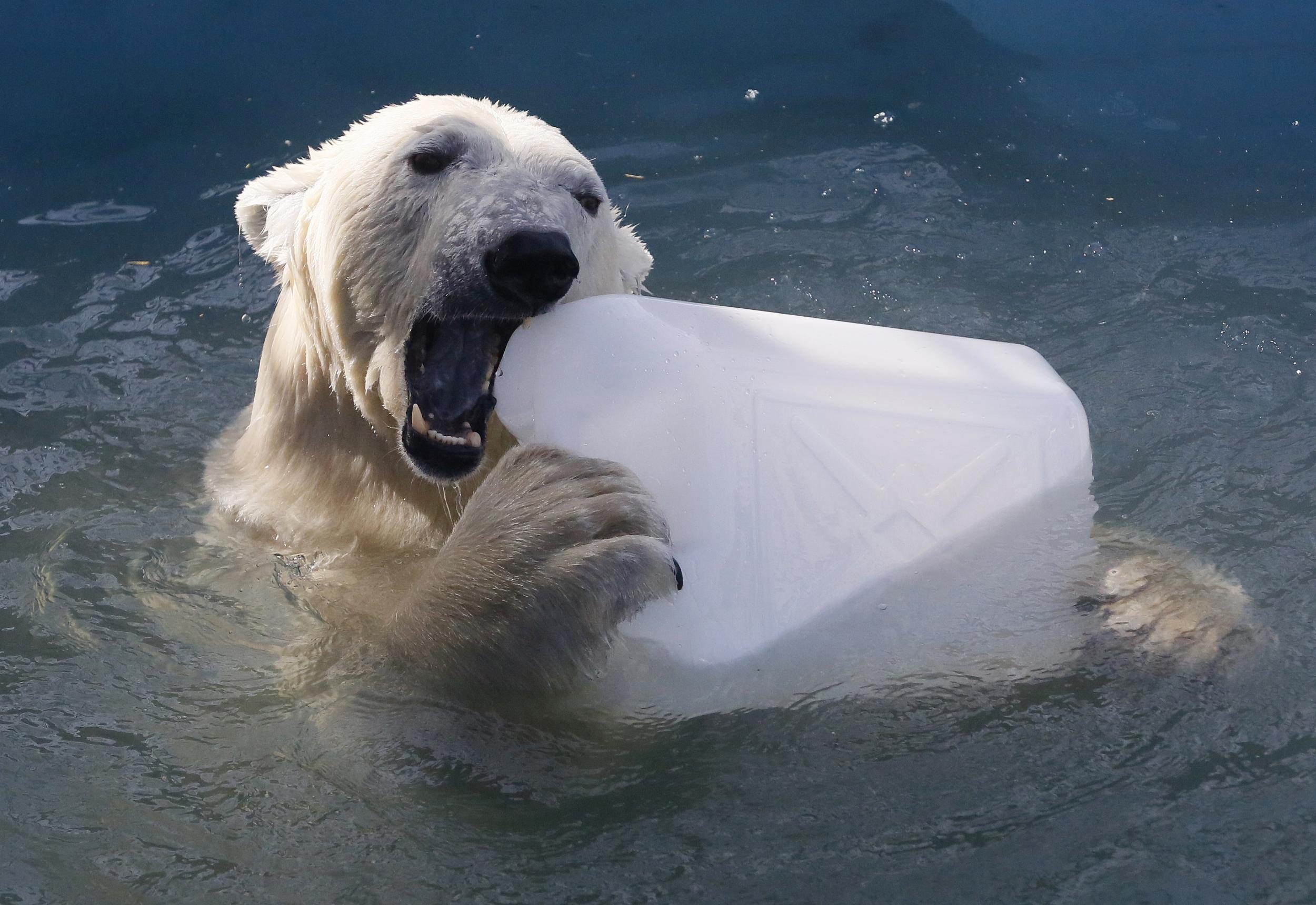'A death sentence for polar bears': Trump administration seeks changes to endangered species protections
Conservation groups are already vowing to sue the Donald Trump administration if the revisions go into effect

Your support helps us to tell the story
From reproductive rights to climate change to Big Tech, The Independent is on the ground when the story is developing. Whether it's investigating the financials of Elon Musk's pro-Trump PAC or producing our latest documentary, 'The A Word', which shines a light on the American women fighting for reproductive rights, we know how important it is to parse out the facts from the messaging.
At such a critical moment in US history, we need reporters on the ground. Your donation allows us to keep sending journalists to speak to both sides of the story.
The Independent is trusted by Americans across the entire political spectrum. And unlike many other quality news outlets, we choose not to lock Americans out of our reporting and analysis with paywalls. We believe quality journalism should be available to everyone, paid for by those who can afford it.
Your support makes all the difference.Conservation groups are fighting tooth and nail against Donald Trump’s administration in an effort to stop proposed revisions to the implementation of the Endangered Species Act from taking effect.
Wildlife organisations responded with outcry after federal agencies announced plans to “modernise” and “streamline” the legislation, which protects species on the brink of extinction, and other animals facing significant threats to their population. Under the new changes, species listed as “threatened” would no longer receive the same protections of those listed as “endangered,” according to a joint statement from the US Fish and Wildlife Service and National Oceanic and Atmospheric Administration’s National Marine Fisheries Service.
Brett Hartl, the government affairs director at the Centre for Biological Diversity, described some of the proposed changes as a “death sentence for polar bears” in an interview with The Independent.
“This is the Trump administration quietly — but very surely — saying that when it comes to wildlife, you’re out luck and on your own,” he said.
Under the proposed revisions, the administration would no longer evaluate areas for protected habitats where a species could be expected to live if its population were to recover. This would severely limit the size and scope of protected habitats for species impacted by climate change, according to Mr Hartl.
Another proposed change would reduce the amount of consultation between government agencies and wildlife services, potentially allowing projects with adverse effects on the surrounding environment to be approved with little oversight.
“Cumulatively, when you put all of these proposals together what you’re seeing is a dramatic reduction of protections afforded to endangered species,” Mr Hartl continued. “Moving forward, threatened species will live in a world where they get almost no protections, making their recovery all the more difficult.”
However, the government claims the backlash is unwarranted.
Gavin Shire, chief of the office of public affairs at the US Fish and Wildlife Service, told The Independent that no species will lose protections under the proposals. Rather, the department will individualize protections for newly-listed species.
“It won’t strip protections from any species currently listed as threatened that is covered by the blanket 4D rule,” he said, citing the rule which provides the same protections to both threatened and endangered species. “Those protections will remain in place.”
In a statement announcing the proposals, Interior Department deputy secretary David Bernhardt said the changes “will be protective and enhance the conservation of the species”.
”At the same time we hope that they ameliorate some of the unnecessary burden, conflict and uncertainty that is within our current regulatory structure,“ he said.
The World Wildlife Fund said the proposals are “of grave concern” in a statement, describing the move as an “effort to weaken the Endangered Species Act” that would ultimately “put our planet’s imperilled wildlife further at risk.”
“By keeping these precautionary measures under the ESA intact, we can ensure the survival of America’s remarkable wildlife while also doing our part to stem the sweeping loss of biodiversity we are seeing globally,” said Ginette Hemley, senior vice president of the World Wildlife Fund.
The Centre for Biological Diversity told The Independent it plans on continuing to speak out against the proposed changes, and will sue the Trump administration if they eventually go into effect.
“Many of the things they’re proposing are plainly illegal,” he said. “We’ll fight them in court and eventually I think we’ll prevail, though they’ll cause significant damage in the meantime.”
Join our commenting forum
Join thought-provoking conversations, follow other Independent readers and see their replies
Comments